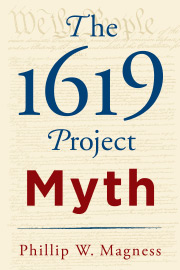Taking America Back: The Conservative Movement and the Far Right, by David Austin Walsh, Yale University Press, 320 pages, $35
“It’s the cleanest, neatnest [sic] operating piece of social machinery I’ve ever seen. It makes me envious.” When Rexford Tugwell, an adviser to President Franklin Roosevelt, wrote these words in 1934, he was not referring to the New Deal programs in his purview. He was recording his thoughts on fascist Italy while awaiting an audience with Benito Mussolini. Tugwell reacted with similar awe upon touring the Soviet Union in 1928, penning an essay urging Americans to reflect on what they might adapt from Josef Stalin’s “experiment.”
For progressive historians who depict the New Deal as a “democratization” of the economy, Tugwell creates an unsettling complication. So do the many other leftist intellectuals who turned to the illiberal regimes of interwar Europe as models of economic planning. When conservative writer Jonah Goldberg assembled those episodes in his 2007 book Liberal Fascism, he struck a raw nerve with progressives. Taking America Back—a book from Yale University Press by David Austin Walsh, currently a postdoctoral researcher at Yale—emerged from a decadeslong fit of spite over Goldberg’s explorations of the undemocratic left.
Walsh’s monograph is an oddity. It mainly consists of scattershot vignettes about the racist and antisemitic figures who hovered around the American far right of the mid–20th century. The closest the text comes to a thesis statement is this: “All of the principal protagonists in this book—Merwin K. Hart, Russell Maguire, George Lincoln Rockwell, Revilo Oliver, Pat Buchanan, and Joe Sobran—have something in common,” he writes. “They were all connected in some way to William F. Buckley, Jr.”
Walsh views Buckley, the “respectable” founder of National Review, as an arms-length partner of the aforementioned “crackpots” in what he dubs a conservative “popular front” against Roosevelt’s policies. As in many works of this genre, the New Deal never faces meaningful interrogation. Its policy prescriptions are seen as obvious “democratic” correctives to capitalist excesses; the only conceivable motive for opposing it, Walsh apparently believes, is the reentrenchment of wealth and power.
Buckley tapped the brakes against the excesses of the far right, nominally “purging” them when they became a liability, as with his 1962 denunciation of the John Birch Society. Meanwhile, the fringe elements festered in the background and, per Walsh, transmitted a lineage of racism and antisemitism to the present day. Those elements, Walsh argues, gained the upper hand after Buckley’s death in 2008. Donald Trump followed, and with him a fascist undercurrent that seized control of the American right. This story somehow places the culpability for the January 6, 2021, riot at the U.S. Capitol on Buckley’s shoulders, thereby bringing Walsh back to the object of his spite. In his telling, Goldberg created the “‘liberal fascism’ trope” to “obfuscate historical and contemporary connections between the conservative movement and American fascism.”
Walsh’s cast is mostly obscure today. Hart hovered around a variety of anti–New Deal causes from the 1930s. He took an isolationist stance on American entry into World War II, espoused a vision of American society modeled after the Spanish dictatorship of Francisco Franco, and eventually blended virulent antisemitic conspiracism into his attacks on communism. Maguire, an arms manufacturer who purchased The American Mercury in 1952, steered its editorial line into antisemitism and lost its distributor and subscriber base in the process.
Oliver was once a distinguished classics professor whom Buckley befriended and recruited as a book review editor for the nascent National Review. The two men had a sharp falling out in the late 1950s as Oliver rebuffed Buckley’s attempts to steer him away from antisemitic conspiracism and found himself excised from the masthead. Rockwell’s story is more of a whimper. He worked a six-month stint as a subscription salesman for National Review in 1955. He would later attain infamy as the leader of the American Nazi Party, and he peppered Buckley with unsolicited diatribes alleging betrayal of a largely imaginary friendship.
Buchanan and Sobran are perhaps the most familiar figures on Walsh’s list, each hailing from the “paleoconservative” wing of the right that diverged from the hawkish “neoconservatives” during the Middle Eastern conflicts of the 1990s and 2000s. Both faced credible accusations of stoking antisemitism. Buchanan, who worked as a columnist and Republican political appointee, eventually attracted a censure from Buckley for his commentaries. Sobran, who drifted further into the intellectual periphery at the end of his life, found himself ousted from National Review, where he had worked as a Buckley lieutenant.
All of these episodes are well-known among historians of American conservatism, even making their way into sympathetic biographies of Buckley. They reflect a career that is not without blemishes, such as Buckley’s infamous 1957 editorial against racial desegregation and in favor of white political dominance in the South. Yet Buckley’s beliefs on race evolved in an egalitarian direction over his lengthy career. His encounters with antisemites, an ugly underbelly of American politics that long predates modern conservatism, show sustained disapprobation of this bigotry, even at the expense of personal friendships. The questions then emerge: Why this book, and what does it tell us that is new?
Even in simple matters of style, Taking America Back does not befit a distinguished academic press. It is full of turgid quips and manic exasperation, all in desperate need of a copy editor. Notable figures sometimes materialize in the text without meaningful introduction or context.
Consider Walsh’s discussion of Willis Carto, founder of the antisemitic Liberty Lobby, whom Buckley sued for libel in the 1970s. A fixture of the far-right fringe, Carto would have been a natural topic for Walsh’s investigation but for the fact that Buckley repeatedly denounced him as a toxic racist. After omitting this context, Walsh dances around the substance of their courtroom dispute, which involved Carto’s portrayal of Rockwell as a founder of National Review, a close collaborator of Buckley’s, and an expositor of the magazine’s “true” racial beliefs. The courts rejected Carto’s claims. One wonders if Walsh elides these details because he recognizes the similarities between his thesis and Carto’s. Both depict Buckley as a closeted racist whose public disavowals were a ruse to remain respectable.
To Walsh, Buckley was always a “stalwart defender of white supremacy in America.” This premise leads to a recurring mismatch between Walsh’s narrative and the archival sources he musters. He wants his readers to see “the purge that wasn’t”—a continuum of bigoted cranks in Buckley’s orbit who found themselves excluded only when their antics caused him embarrassment. Instead, Buckley’s letters reveal a genuine distaste for the antisemitic right and half a century of conscious moves to keep it at bay.
As even Walsh concedes, the crackpot elements were stunningly incompetent organizers, belying the notion that they brought any value to Buckley’s supposed “popular front.” Hart’s ineptitude made him a joke, even among other critics of the New Deal. Maguire’s mismanagement of The American Mercury tanked the magazine’s reputation within a few years of his acquisition. Oliver destroyed his own academic career. Rockwell died at the hands of a fellow Nazi, his cause universally reviled by the public and his life in squalor.
Unsurprisingly, leftward introspection is nowhere to be found in this book. At one point Walsh puts forth W.E.B. Du Bois’s unfinished 1937 travelog A World Search for Democracy as an egalitarian foil to the fascistic right. It’s an odd choice, given that Du Bois composed this work during a controversial 1936 tour of the Third Reich as a guest of his friend Egon Freiherr von Eickstedt, an anthropologist who created a pseudoscientific racial classification system that won him the Nazi government’s favor. Du Bois condemned the antisemitism that he witnessed among the Nazis yet courted several years of controversy through flattering portrayals of German economic planning. Historian David L. Lewis observed that “Du Bois’s readings of National Socialism ran from equivocal to complimentary” in this era, a pattern that intensified after Germany entered into alliance with the Soviet Union at the outset of World War II. Until Hitler’s invasion of Russia in 1941, Du Bois held out hope that Stalin’s tutelage would induce National Socialism to evolve into a Marxist socialism, a cause he championed.
These late-life stains on Du Bois’ reputation need not discredit the entirety of his work. But they expose an asymmetry in Walsh’s singular outrage whenever Buckley crossed paths with a bigot. How many intellectuals of the 20th century left would survive the same sort of scrutiny?
For that matter, how much scrutiny would Walsh survive? The same author who projects culpability for January 6 onto the deceased Buckley caused a minor tempest in late October 2020 by tweeting: “If the worst-case scenario happens next week, Americans don’t need to just ‘protest.’ They need to actively try to topple the government.” Perhaps the main lesson of Goldberg’s book was not the sanitization of the right that Walsh alleges but its revelations of hypocrisy on the left—a habit in which illiberal progressives continue to indulge.










